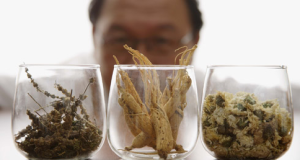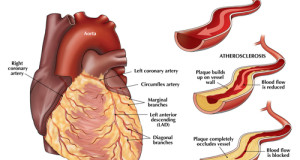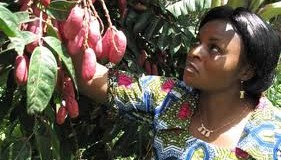I recently had a few suggestions to write a “Zoonotic Infections” column addressing diseases of humans that are transmissible to animals. When I subsequently discussed the appropriate terminology for such diseases with a peer veterinary epidemiologist, he said, “Reverse zoonosis is fine by me but only because the medics insist that allzoonoses go from animals to man. Indeed, WHO defines ...
Read More »Yearly Archives: 2016
Sauerkraut and Saving the World
It’s hard to go anywhere these days without running into a super-food. From farmers’ markets to your local grocery store, shelves are increasingly packed with items like goji berries, chia seeds, kelp and … sauerkraut? That’s right, sauerkraut. Not a traditional super-food by definition, this stringy, pale product of fermentation is the victim of a serious case of mistaken identity. ...
Read More »Study – The Best Method(s)
As time has progressed throughout history, students from different ages and backgrounds seem to have the belief that cramming and pulling all nighters are beneficial to our output on exams. However, despite said belief, taking study breaks throughout periods of studying are extremely beneficial for an individual’s grades. Scientists have found more about the nature of our brain’s attention spans ...
Read More »Why Write to Remember, Not Type
Note-taking using pen and paper has quickly become obsolete, at least in college classrooms. In the digital age, using laptops, or “notebooks,” to transcribe lectures has become common practice, but can typing electronic, copious notes be harmful to academic performance? According to a recent study in a forthcoming issue of the journal Psychological Science, using pen and paper, not laptops, ...
Read More »Garcinia Cambogia – some discipline, is worth the results
Some say it’s hyped, but others say it’s just misunderstood. Hear from the researcher behind the most important studies and make your own decision! Garcinia Cambogia also known as the Malabar tamarind, is a small, sweet tropical tree fruit shaped like a pumpkin. In the late 1960s, scientists discovered an acid in the fruit somewhat similar to the citric ...
Read More »I began to read moisturizer lables and decided whqat I could learn about making skin-friendly blends without all the chemicals. Good skin was one of my aims but to reduce the exposure to the many chemicals and artificially synthesized products was as much a principle as a preoccupation for me. As the occult dangers of many chemicals are only ...
Read More »Prostate Cancer Prevention
The ultimate goal is to prevent men from developing prostate cancer. Although significant progress has been made and genetic and environmental risk factors for prostate cancer have been identified, the evidence is not strong enough for conclusive recommendations. Studies with finasteride and dutasteride, which are typically used to treat men with the noncancerous condition BPH, have shown that these drugs ...
Read More »Skin Care Essentials – Avoid Cancer
Most skin cancers are preventable. To protect yourself, follow these skin cancer prevention tips: Avoid the sun during the middle of the day. For many people in North America, the sun’s rays are strongest between about 10 a.m. and 4 p.m. Schedule outdoor activities for other times of the day, even in winter or when the sky is cloudy.You absorb ...
Read More »Reversing Cardiovascular Disease
Reversing Atherosclerosis and Cardiovascular Disease Larry Sosna N.D. PhD HHP The Medical establishment would have all of us believe that coronary heart disease is irreversible and must lead to either the eventual so called heart attack due to clogged arteries; or to by-pass operations, stents, followed ...
Read More »Pygeum – Ethnobotany goes mainstream for prostate
The African cherry tree, pygeum africanum, is an evergreen found at higher elevations across Africa. Its medicinal use dates to the 1700s, when tribes in southern Africa taught early explorers how to use the tree’s bark to treat bladder discomfort.1 Pygeum extract has been used in Europe to treat benign prostatic hyperplasia since the 1960s, and is currently the most ...
Read More » Vitamin Agent The Health & Naturalistic Source
Vitamin Agent The Health & Naturalistic Source









